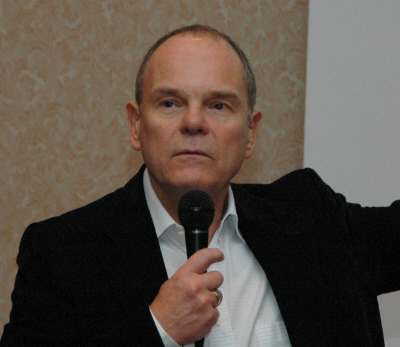Inside the mind of the Net generation

During a session at the Web 2.0 Summit, author and consultant Don Tapscott shared results from a research project on the Net generation, the first humans to grow up digitally. An estimated 80 million people in the U.S. alone are coming into the workplace and marketplace with a far different set of experiences and skill than previous generations. “Kids are lapping their parents on the info track,” Tapscott said.

In the survey of 2,000 people between the ages and 12 and 29, the results showed that freedom of choice was a critical factor. Unlike older generations, the Net generation has many options. In addition, freedom to customize--cars (Pimp My Ride), computers or anything that makes it fit with who they are—is also important.
The Net Generation also wants the freedom to schedule. In the survey, 42 percent of those survey watch TV asynchronously, time-shifted viewing. Television took 24 hours of the week per baby boomer, Tapscott said, but the Net generation watches less TV and the whole way they process information and think is different. “This is not just a life stage difference, this is a generational difference because cognition and information process different because of way they have grown up.”
The Net generation is also the new “scrutinizer,” and the majority do research prior to purchasing, 42 percent of the respondents at the top of the adoption pyramid write reviews. This means that those who are selling to the scrutinzers can’t slide by with substandard products or services.The search for integrity is another aspect of the Net generation. “They have very deep values and believe very strongly,” Tapscott said. “If you are Sony and give out 50 cameras to actors who pretend they are tourists and take pictures of kids, that is an integrity violation and you are going to get nailed.”
Relationships and collaboration are part of the Net generation psyche. In the survey 65 percent of respondents preferred a two-way relationship with the brands they select, and the majority are willing to share information. Hence, the rise of social networks, or ‘n-fluence’ networks, in which the Net generation influences each other and other generations.
Experiences, entertainment, fun and playfulness are all an expected part of the relationship with products. Speed and immediacy are another trait of the Net generation. They have grown up multitasking and “The general trend is because they have grown up multitasking
The brand becomes a more complicated construct, and requires messaging that resonates with the most influential consumer generation in history. “This is a generation that will set a higher bar.”
As employees, the 80 million young adults coming into the workplace, the Net generation has more experience in the digital world and personal connections to the job, and will want to be part of an engage and collaborate model rather than command and control. “They want to learn, have fun and do something significant,” Tapscott said. "We have to creating working/learning environments, with learning built into the work system.”
He concluded by saying that Net generation coming into the workforce and marketplace will require a paradigm shift that “involves dislocation, conflict, confusion and uncertainty. New paradigms are nearly always received with coolness, even mockery and hostility. Those with vested interests will fight change, and the shift demands such a different view to things that established leaders are often the last to be won over.”